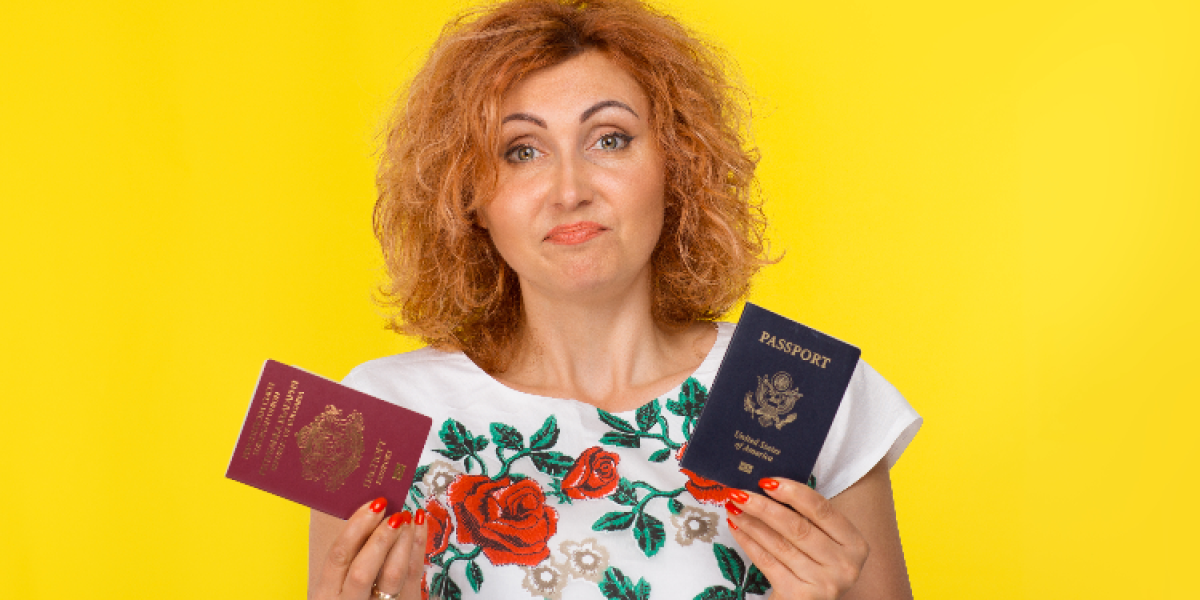
Does being an expat mean always being the outsider? Not quite at home in your host country and a little bit of a stranger to your home country. Stephanie discusses how she navigates this identity as a Brit living in Paris.
I moved to Paris from England in 2012.
At the time I assumed I would stay for a year or two before returning home bi-lingual, gamine (I had yet to find out what gamine meant, but it was definitely an aspirational Paris-type-thing I wanted to be), and wildly successful.
It is now 2020, and I'm still here.
When I think about lugging that enormous suitcase onto the Eurostar eight years ago I realise I had absolutely no idea what I was getting myself into. I thought I was just whizzing under The Channel for a neat-and-tidy 18 months, but in fact I was embarking on a much longer journey that would define the next decade and (if you'll forgive me a moment of melodrama) the rest of my life. At the time, I didn't appreciate that this was a seismic shift. If I had, I would have been terrified at the magnitude of it, but instead I just lugged the suitcase off the Eurostar at Gare du Nord, dragged it up seven flights of stairs, and got on with it.
None of the things I thought would happen have happened. I am not bilingual. I still don't know what gamine means. No-one in their right mind would call me wildly successful. What has happened, is that I have gone from being an expat on a temporary fling with France, to an immigrant with no plans to leave. When I moved here, I never imagined the move would last long enough, or be final enough, to transform what was essentially a whim into a fundamental part of who I am. Yet here we are - so many of us, definitively changed by living in another country.
For long-term expatriates, the question of belonging can become a hum in the background of day to day life: sometimes inaudible, sometimes deafening. There are days when you feel like you've landed. The waiter at your local cafe knows how you like your coffee; you succeed in making a joke in your second language; you conquer some administrative challenge. Then, there are the other days.
Even with a passport, the right to vote, the language, and all the paperwork of residence and citizenship, we are faced with perhaps the biggest hurdles of all - humour, cultural references, social nuances, politics, language, the love of Home.
It's an existential puzzler. Do we really belong here? Yes, of course! And, then well, no. In the Yes column, there's the fact that we wanted to be in our adopted countries enough to jump through all the necessary hoops to be there, that we live and work and shop and eat and drink and pay taxes there. And in the No column? At the end of the day we are not _______ (enter relevant nationality here). Even with a passport, the right to vote, the language, and all the paperwork of residence and citizenship, we are faced with perhaps the biggest hurdles of all - humour, cultural references, social nuances, politics, language, the love of Home.
Speaking of home, after years of living in another country I learned a surprising thing: feeling like an expatriate doesn't apply exclusively to the country you choose to live in. In a curious plot-twist, I was increasingly feeling like an expatriate in my own country too. It's impossible not to bring your new life with you, wherever you go. I love the un-Frenchness of being at home, but I can't help but compare the two worlds and see things differently now. (The bread, for a start). Both countries are hugely loved, and neither one is spared criticism. The new and disconcerting reality is that while there, I am half here, and while here, I am half there.
So what does that mean? After years of living in, and loving, another country, where do we really belong?
It was during a conversation with a French friend that I was gifted a new perspective on this whole conundrum. He listened patiently as I massacred his language trying to explain. He looked confused. Obviously I thought this was a result of my French, but it turns out he thought I was just looking at it all wrong.
“But this is a good thing! You are both now,” he said. “You are not one or the other. You are not French, but you are not only British either. You belong in two places. What an amazing thing! It's a superpower.”
This is how I decided to rebrand ‘not belonging.' I decided to celebrate the in-between-ness of it all, instead of worrying about it. Yes, I am British. But I'm also a bit less straightforwardly British than I was before, and a bit more French than I would have thought possible.
It's not about loving one culture more than another, it's about learning about and understanding and appreciating both as much as possible. As expatriates, it's our choice and our privilege to be influenced and infuriated and inspired by more than one home. We choose to be the champions of two cultures and to grow in both. And that's just one of the beauties of expatriation. Just one of its many superpowers.



















